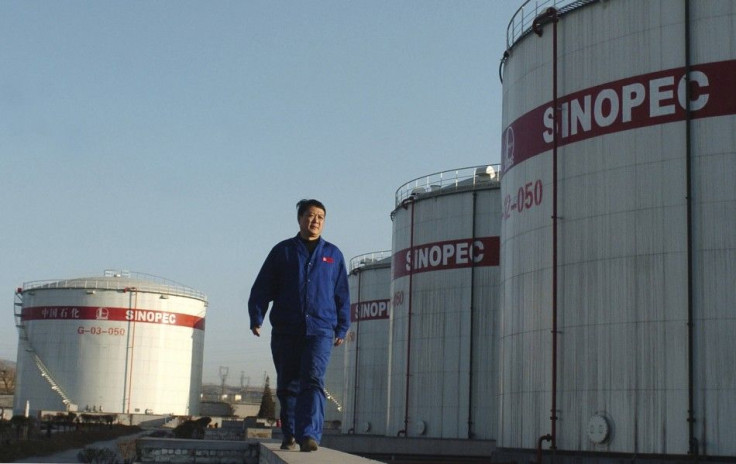China's State-Owned Oil Company's Corporate Reshuffle Part Of Xi Jinping's State Sector Merger Plans

Leaders at three huge state-owned oil companies in China were recently replaced -- not for being placed under investigation as part of President Xi Jinping’s anti-graft drive, but as part of Xi's plan to reduce the country's number of state-run businesses. The shakeups affected the executive boards of China National Offshore Oil Corp. (CNOOC), China National Petroleum Corp. (CNPC) and China Petrochemical Corporation Group (Sinopec).
Financial magazine Caixin reported that CNPC’s Zhou Jiping and Sinopec's Fu Chengyu both retired at 63, the typical retirement age at government-owned enterprises. Zhou will be replaced by CNOOC Chairman Wang Yilin, whose place at CNOOC will be taken by Yang Hua, the company’s current general manager. Fu will be replaced by Wang Yupu, currently a deputy dean at the Chinese Academy of Engineering.
The new leaders will take the helm during a particularly difficult time for China’s government-owned companies as more mergers and job cuts are expected in the near term. Huge oil conglomerates have faced increasing scrutiny as global crude prices drop. Last week, Xi announced plans to reduce China’s number of state-run conglomerates from 112 to 40. China's state-owned companies account for about one-third of the nation's economy, but more than a quarter lose money, Bloomberg reported, citing a financial note by Barclays last August.
The restructuring of the state sector is part of Xi’s broader plan to boost the performance of the country’s government-run companies, allowing for “resources to be increasingly concentrated on large enterprises,” state-run Economic Information Daily reported last week, as Reuters reported. The Communist Party’s Central Commission for Discipline Inspection, the anti-corruption body of the government, also announced stricter inspections of state firms' financial transparency.
© Copyright IBTimes 2024. All rights reserved.




















